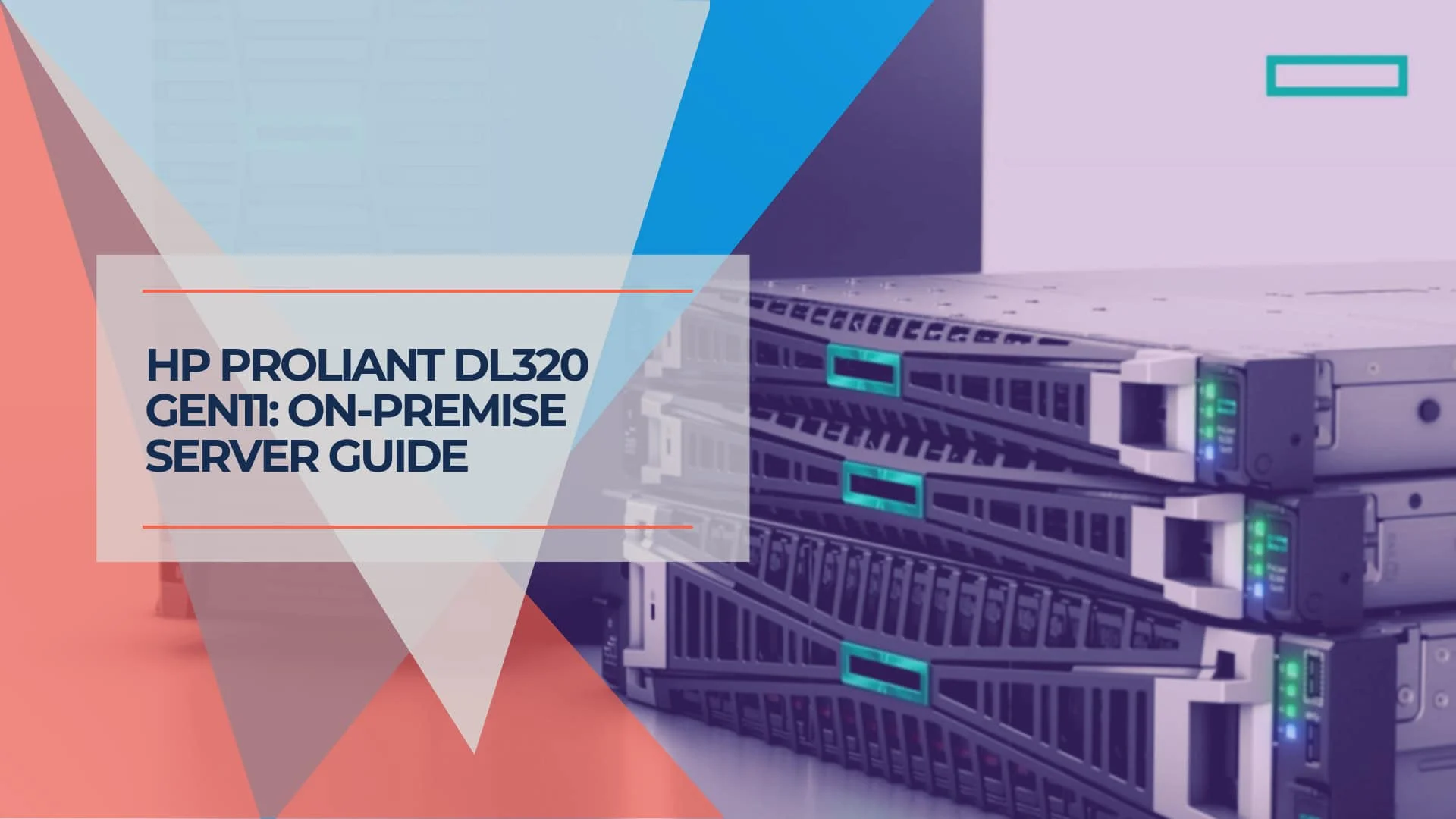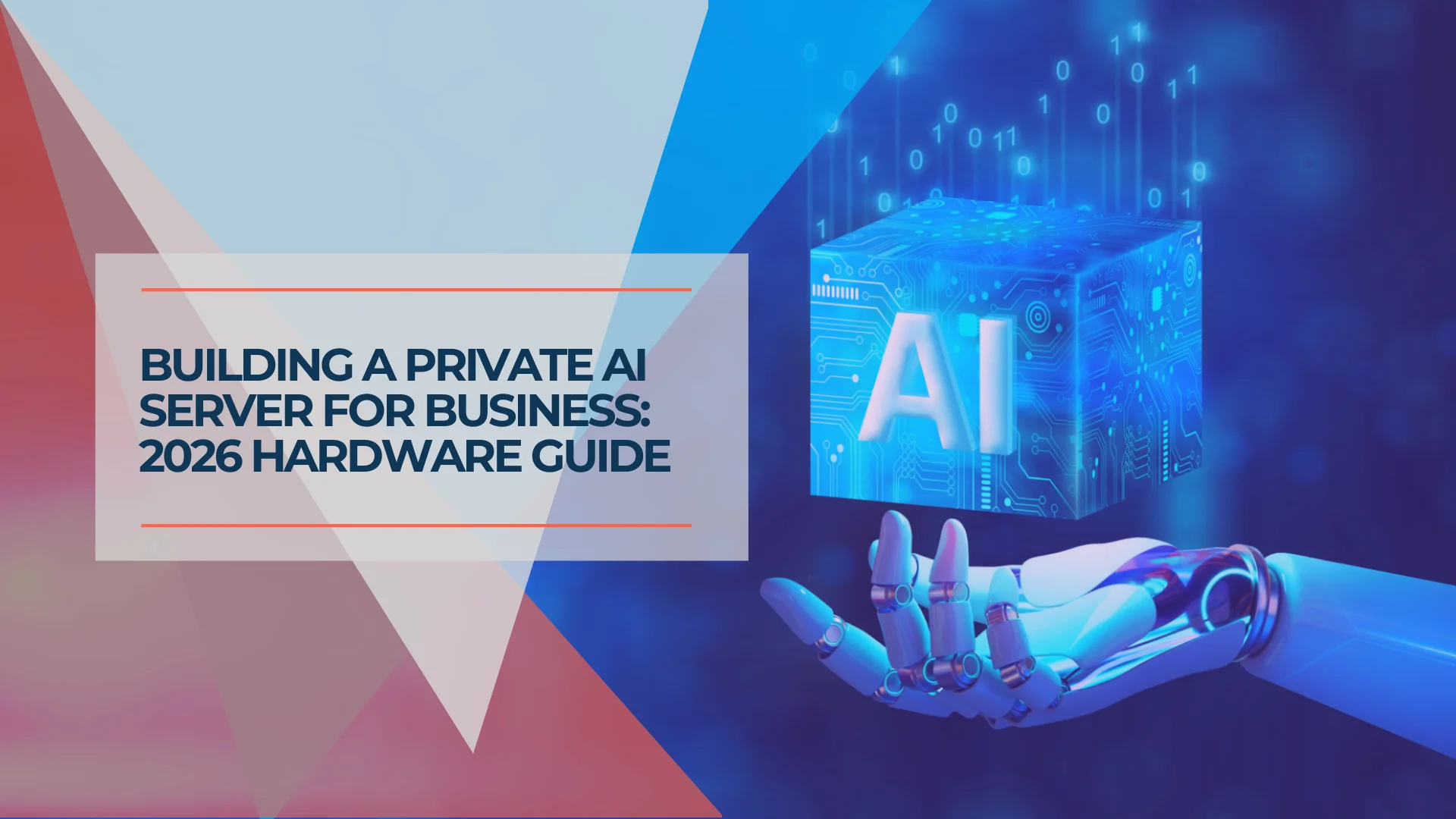Small Business Server Setup: Your Detailed Overview
Complete guide to setting up a server for your small business. Learn about server types, HP and Dell options, setup steps, network configuration, maintenance, and growth strategies.


Introduction
The backbone of any successful small business is its technology infrastructure. The server is at the heart of this infrastructure – a powerful system designed to manage, store, send, and process data 24/7. Whether it's customer data, employee information, or the company's website, a server is crucial in ensuring these digital assets are always accessible and secure.
For small businesses, setting up a server can seem like a daunting task. However, with the right knowledge and resources, it's a task that can lead to significant benefits. A well-configured server can improve efficiency, enhance data security, and provide the scalability necessary for growth.
This guide aims to demystify setting up a server for your small business. We'll walk you through the basics of understanding servers, preparing for setup, maintaining, and leveraging your server for business growth. Whether you're a tech-savvy entrepreneur or a small business owner looking to expand your digital footprint, this guide will equip you with the knowledge you need to make informed decisions.
Key Takeaways
| Topic | Summary |
|---|---|
| Understanding Servers | Servers facilitate data sharing, collaboration, and security |
| Choosing a Server | Select a server type and brand that aligns with your business needs and budget |
| Server Setup | Involves selecting hardware and software, installing an OS, and configuring the server |
| Server Maintenance | Regular performance monitoring, software updates, and data backups are crucial |
| Leveraging Your Server | Servers can enhance business operations and drive growth |
| Network Setup | Establishing a network for your server is key for a robust and efficient IT infrastructure |
Understanding Servers
Before we dive into setting up a server, it's essential to understand what a server is and its role in a business.
A server is a computer or system that provides resources, data, services, or programs to other computers, known as clients, over a network. In essence, servers handle client requests – these requests could be for accessing a website, retrieving an email, storing a file, or running an application.
They play a crucial role in businesses of all sizes. They facilitate communication and collaboration, enable data sharing and storage, and host applications and services needed for business operations. In short, they are the workhorses of your business's IT infrastructure.
There are several types of servers, each serving a specific function:
- File Servers: These store, manage, and distribute files to connected clients on the network. They are essential for sharing resources and collaborative work environments.
- Web Servers: They deliver web pages to users based on their HTTP requests. They are the backbone of any business with an online presence.
- Database Servers: These store, retrieve, and manage data in a database. They are crucial for businesses that handle large amounts of data.
- Mail Servers: These manage and transfer emails over a network. They are vital for business communication.
- Application Servers: These host business applications, allowing users to connect and use them over a network.
Choosing the Right Server
Choosing the right server for your business is a decision that should align with your business needs, growth plans, and budget. For instance, a small business that relies heavily on online transactions might prioritize a robust web server with lots of RAM. In contrast, a business dealing with large amounts of data might invest in a powerful database server with a high-end storage solution.
Popular Server Brands
Two of the most popular server brands in the market today are HP (Hewlett Packard) and Dell, both renowned for their reliable and high-performing machines. Let's take a closer look at what these brands have to offer:
HP Servers
HP, a brand synonymous with quality and reliability in tech, offers a range of servers designed to meet different business needs. Their ProLiant series, for instance, is a popular choice among small to medium-sized businesses. These servers are known for their performance, scalability, and comprehensive security features.
HP servers come with the Integrated Lights-Out (iLO) technology, a proprietary tool that allows remote server management, reducing the need for physical access to the server. This can be particularly useful for businesses without a dedicated IT team.
Dell Servers
Dell, another heavyweight in the server market, offers the PowerEdge series of servers. These servers are designed to emphasize scalability, performance, and security. They are equipped with the latest processors, ample memory and storage options, and robust security features, making them a solid choice for businesses of all sizes.
One standout feature of Dell servers is the OpenManage systems management portfolio. This suite of tools allows for simplified server management, with capabilities like automated updates and proactive maintenance.
HP vs Dell
Choosing between HP and Dell, or any other server brand, ultimately comes down to your specific business needs and budget. Both brands offer a range of options, from entry-level servers for small businesses to more advanced solutions for larger operations.
Dell PowerEdge T150/T350 Product Video
Setting Up a Server
Now that we've covered the basics of understanding servers and preparing for server setup, it's time to dive into the process. Here's a detailed, step-by-step guide on how to set one up for your small business:
Step 1: Choose Your Server Type
Choose the type of server you want to set up based on your business needs. This could be a file server, web server, database server, mail server, or application server. Your choice will dictate the hardware and software requirements for your server.
Step 2: Select Your Hardware
The hardware you choose should be capable of handling the demands of your server. Consider factors like processing power, memory, storage capacity, and network capabilities. Remember, investing in quality hardware can save you from performance issues down the line.
Step 3: Choose Your Server Operating System
The server operating system (OS) is the software that manages your server hardware and software resources. Popular choices include Windows Server and Linux distributions like Ubuntu Server. Your choice of OS will depend on your server type, budget, and personal preference.
Step 4: Install Your Server Operating System
Once you've chosen your server OS, it's time to install it. This process will vary depending on the OS but generally involves downloading the OS, creating a bootable USB or DVD, and following the installation prompts.
Step 5: Configure Your Server
After installing the OS, you'll need to configure it based on its purpose. This might involve setting up user accounts, configuring network settings, installing necessary applications, and setting up security measures.
Step 6: Test Your Server
Before going live, test your server to ensure it's functioning correctly. This might involve checking network connectivity, testing server applications, and ensuring the server can handle its intended load.
Step 7: Maintain Your Server
Once your server is up and running, regular maintenance is crucial. This includes regular updates, backups, and monitoring server performance.
Server Setup Best Practices
- Plan Ahead: Before setting up your server, have a clear plan. This includes understanding your business needs, budget, and growth plans.
- Prioritize Security: From the get-go, prioritize security measures to protect your server and data. This includes setting up firewalls, using strong passwords, and regularly updating your software.
- Regular Maintenance: Regular maintenance can prevent server issues and downtime. This includes monitoring server performance, updating software, and backing up data.

Setting Up a Network
Once you've set up your server, the next step is establishing a network that allows your devices to communicate with the server. This is a crucial part of your small business infrastructure, enabling data sharing, collaboration, and access to shared resources. Here's a guide to setting up a network for your small business server:
Understanding Networks
A network is a group of computers and other devices connected to each other, such as printers and smartphones. This connection allows devices on your network to share data and resources. The server acts as a central hub in a business network, managing and coordinating network traffic.
Setting Up Your Network
- Invest in a Router: The router is the heart of your network, directing traffic between your server and the devices on your network. When selecting a router, consider factors like speed, security features, and the number of devices it can support.
- Configure Your Router: Connect your router to your server and configure it according to your business requirements. This includes setting up security measures like a strong network password and configuring the firewall.
- Connect Your Devices: Connect your devices to the network. This typically involves selecting the network on the device and entering the network password.
- Set Up a Domain Controller: You may want to set up your server as a domain controller for Windows Server operating systems. This allows you to manage user accounts and network resources centrally.
Maintaining Your Network
Setting up a network for your small business server is not just about connecting devices. It's about creating a robust, secure environment supporting your business operations and growth.
Maintaining Your Server
The work doesn't stop once your server is up and running. Regular maintenance is crucial to ensure your server runs smoothly and securely. Here are some key maintenance tasks and how to troubleshoot common issues:
Regular Maintenance Tasks
- Monitor Server Performance: Keep an eye on your server's performance to identify potential issues before they become serious problems. This includes monitoring CPU usage, memory usage, disk space, and network traffic.
- Update Software Regularly: Regular software updates are crucial for security and performance. This includes updating your server operating system, applications, and security software.
- Backup Data Regularly: Regular backups can save you from data loss in case of a server failure or security breach. Ensure you have a backup strategy in place and test your backups regularly.
- Check Security Measures: Regularly check and update your server's security measures. This includes checking firewall rules, scanning for malware, and reviewing user access rights.
Troubleshooting Common Server Issues
Even with regular maintenance, you may encounter server issues. Here's how to troubleshoot some common problems:
- Server is Slow or Unresponsive: This could be due to high CPU usage, insufficient memory, or network issues. Check your server's performance metrics to identify the problem.
- Server is Down: This could be due to a hardware failure, network issue, or software crash. Check your server logs for any error messages that could indicate the cause of the problem.
- Security Breach: Act quickly if you suspect a security breach. Isolate the affected system, identify the source of the breach, and take steps to prevent further damage.
Critical Maintenance Practices
The importance of regular updates and backups cannot be overstated. Updates ensure your server has the latest security patches and performance improvements, while backups protect your data in case of a server failure or security breach.

Leveraging Your Server
A server is more than just a piece of technology; it's a tool that can drive business growth when used effectively. Here's how you can leverage your server to improve business operations, along with some future trends to watch out for:
Improving Business Operations with Your Server
- Enhanced Collaboration: A server allows employees to share files and collaborate on projects, improving efficiency and teamwork.
- Data Centralization: By storing data on a server, you can ensure it's accessible, up-to-date, and consistent across your business.
- Improved Security: Servers provide robust security measures to protect your business data, giving you peace of mind and protecting your reputation.
- Scalability: As your business grows, your server can be upgraded or expanded to handle increased demand.
Future Trends in Server Technology
- Cloud Servers: More businesses are moving to cloud servers, which offer scalability, flexibility, and cost savings. Preparing for this trend could involve learning about cloud server providers and considering if this option is right for your business.
- Green Servers: As sustainability becomes more important, green servers that use less energy are becoming more popular. This could involve looking for energy-efficient server options and considering ways to reduce your business's environmental impact.
- AI and Machine Learning: AI and machine learning technologies automate server maintenance tasks and improve server performance. Staying up-to-date with these technologies could give your business a competitive edge.
Conclusion
We've journeyed through the world of servers, from understanding what a server is to setting one up and leveraging it for business growth. We've learned that a server is more than just a piece of technology; it's a tool that can enhance collaboration, centralize data, improve security, and provide scalability for your business.
Key Takeaways Summary
- Understand the different types of servers and their functions.
- Choose the right server that aligns with your business needs and growth plans.
- Follow a step-by-step process to set up a server, from choosing your hardware and software to configuring and testing your server.
- Regularly maintain your server to ensure it runs smoothly and securely.
- Leverage your server to improve business operations and drive growth.
Are you ready to take the leap and set up a server and network for your small business? We know it can seem daunting, but you don't have to do it alone. At iFeeltech, we're experts in server setup and network installation. We're here to answer your questions, guide you through the process, and even handle the setup.
Don't let technical challenges hold your business back. Reach out to us today, and let's work together to create a robust and efficient IT infrastructure for your business. Your success is our success.
Frequently Asked Questions
Why does a small business need a server?
A server is crucial for a small business as it facilitates data sharing, enhances collaboration, hosts applications, and provides a secure environment for business data.
How do I set up a server for my small business?
Setting up a server involves choosing the right server type, selecting appropriate hardware, installing an operating system, configuring the server, and testing its performance.
What type of server is best for a small business?
The best server for a small business depends on the business's needs. File servers, web servers, and database servers are common choices. Windows Server Essentials is often recommended for small businesses due to its user-friendly interface and robust features.
What is the difference between physical and web servers?
A physical server is a computer that runs server tasks in a server room or data center. A web server, on the other hand, is a type of server that hosts websites and makes them accessible to computers on the network.
How do I choose a server for my small office?
Choosing a server for a small office involves assessing your business needs, considering the type of server, the operating system (like Microsoft Windows Server or Linux Ubuntu Server), and the server hardware, including hard drive capacity.
What is the importance of server security for a small business server?
Server security is crucial to protect sensitive business data from threats. This includes setting up firewalls, using strong passwords, and regularly updating server software.
Should I choose an on-premise server or a cloud server?
Choosing between an on-premise server and a cloud server depends on your business needs. On-premise servers offer more control but require a suitable server location and cooling system. Cloud servers offer scalability and flexibility but require a reliable internet connection to access the server.
What is the difference between tower and rack servers?
A tower server is a standalone unit resembling a desktop PC suitable for small businesses with limited server needs. A rack server is designed to be mounted in a rack and is more scalable, making it suitable for businesses with growing server needs.
Can I use a Linux server for my small business?
Yes, a Linux server, such as an Ubuntu Server, can be a cost-effective and flexible option for small business servers, especially for open-source applications.
Related Resources
- IT Server Room Setup Guide – Complete server room planning
- HP ProLiant DL320 Gen11 Review – Latest HP server analysis
- Network Cabling Services – Professional installation
- Cloud Services – Cloud server alternatives
- Managed IT Services – Full IT support
Related Articles
More from Business Hardware

HP ProLiant DL320 Gen11 Business Server Review: Real-World Deployment for Engineering Firms
Complete HP ProLiant DL320 Gen11 review based on real deployment experience. Windows Server 2022 setup, fan noise solution, iLO 6 configuration, cost analysis, and comparison with Dell PowerEdge.
22 min read

Building a Private AI Server for Business: 2026 Hardware Guide
Run AI models locally without sending client data to the cloud. Compare Mac Studio vs custom PC builds for law firms and medical practices prioritizing data privacy.
7 min read

Business Laptop Buying Guide 2026: Budget, Executive, Field Work & Engineering
Find the perfect business laptop for your needs. Compare specs, ports, warranty options across budget, executive, field work, and engineering categories. Updated December 2025.
23 min read